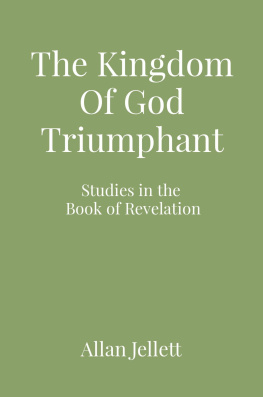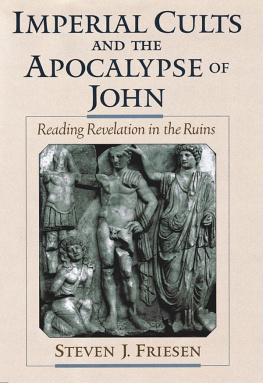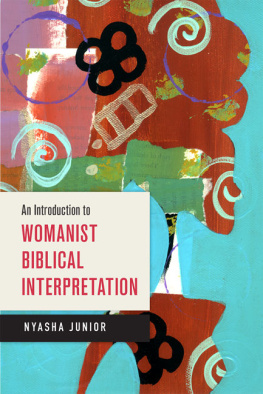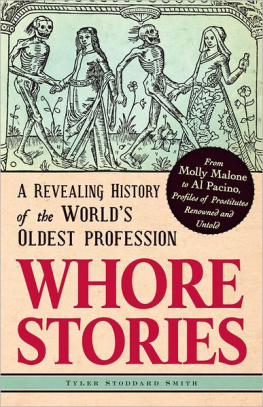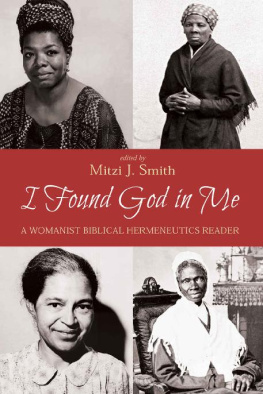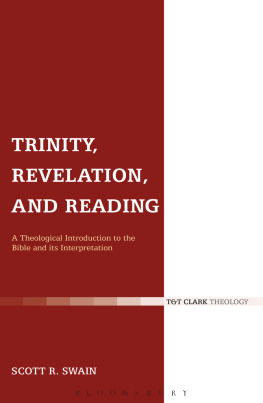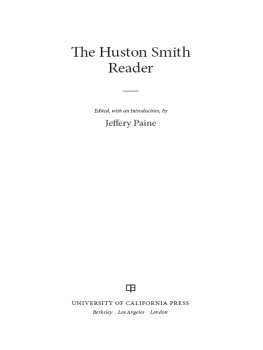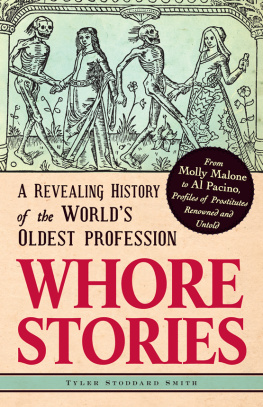Acknowledgements
And then I breathed... deeply. This book, which is a revision of my dissertation, represents more than just a line on my CV, more than a debut of my scholarship; it represents the culmination of all the years in which life happened, and I used my education as a distraction. I have distanced myself from the grief and pain that I felt from the deaths of my maternal grandparents, James and Barbara Babs Harris (I miss you both so much!), the near-death of my beloved sister, and much more. It was too much to bear, yet instead of throwing in the towel (thank you, Mom, for the intervention), I turned all of my energies to my work, completing my doctorate and obtaining a professorship in record time. Do not envy me; I am not bragging. The publication of this book makes me nervous, because it signals to me that it is time for release. It is time to face the pain of those tragic and life-altering events, and I am afraid. Throughout the years, colleagues have inquired, How did you do it? My response has always been, There, but by the grace of God, go I. And this is how I shall move forward. I am thankful that I have a constant support system, and that I do not have to go it alone. I thank all of you in advance. Nevertheless, the publication of this book is also a time for celebration, so I now turn to the task at hand. While there are many that I could thank, there are a few that I need to mention by name.
I thank my best friend, the only one who has the amazing ability to cut through my stress and anxiety with words of comfort and reassurance, clearing a space for me to just be, granting me an opportunity to smile, to be grateful, and to remember that its not that serious. To my husband, Clinton, I shake my head in awe of your grace, your strength, your patience, and your support of what I love to do. I thank God for your companionship, your faith in God, and your ride-or-die approach to your concern for me and our children. I love you.
To my princes, Clinton II, Peyton, and Justin: Mommy loves you! First, I thank you for the attention you need, because without you, I am certain that this book would have taken a lot longer to write. Since graduate school, you have made me one fiercely organized strategist for getting things done most expeditiously. I am grateful for the unconditional love that you give, and the laughs you provideespecially the ones I have when you do not know I am watching. To my mother, Sharon, We did it! Mommy, you are the smartest, most compassionate, and most faithful woman I know. You are my angel. To my dad, George, Hi Dad! I love you. I have never told you this, but you allow me to focus more on my work because I know that you are taking care of my mom. Thank you for your encouragement, your wit, and your love of God. To my sistas, Shakira and Leslie, what can I say, She did that! I can always count on you two to bring me back to earth, to remind me of what is most important, and to put a smile on my face. To my mother-in-law, Carole, I thank you for being who you area loving, caring, and supportive prayer-warrior. To my BJW family, there is no one like you, and I am blessed simply to be in the number.
I am so very grateful to have had the best dissertation committee that I could have had. To Stephen D. Moore (chair), Melanie Johnson-DeBaufre, and Althea Spencer Miller, I am so very appreciative of your scholarly insight, your attention to detail, and more importantly, I am thankful for your unceasing encouragement and respect. To my advisor, Stephen: You are a quiet soul with a beautiful spirit and a brilliant mind. You inspire me to be a great writer, teacher, and mentor. Thank you for being my friend.
The rest of my supportive network runs wide and deep. To my church family, Roseville Presbyterian Church (USA) in Newark, New Jersey, throughout all my years, I knew somebody prayed for me. To my FTE family (now the Forum for Theological Exploration), I struggle to find the words to express my gratitude. If it were not for a presentation by our mother-mentor, Dr. Sharon Watson Fluker, I would not have known that obtaining a Ph.D. was an option. To James S. Logan, Jonathan L. Walton, and Nyasha Junior, you have no idea how great of an impact you had on me. Thank you so much. To my co-laboring sister-colleagues (you know who you are), your solidarity, level of intellectual sophistication, and love are unmatched. To my Drew University familyAcorn Academy, administrative assistants, library staff, the sweet ladies in the cafeteria, the maintenance women and menI see you. I thank you for engaging me in conversation, for your smiles when I greeted you, and for all of the work you did to make my way easy. To my colleagues at Hartford Seminary, I am grateful to work with people with such passion; we have more groundbreaking interfaith work to do together. And to my ladiesthe women who have finally stopped using the f-word with me, that is, faculty, I thank you for welcoming me, and I am glad that I have you in my life.
As I bring these acknowledgments to a close, I can hear my sister sweetly singing, I will lift up my eyes to the hills from which cometh my help. My help cometh from the Lord (Ps. 121). My help: O God, without you none of this would have been possible. I thank you for the unmerited grace and mercy you bestow upon me each day. Throughout my entire life, you have truly showed up and showed out! You are a way maker, a protector and provider, and a healer. It is my hearts desire that the thoughts you have placed in my mind, what I attempted to put from pen to paper, will be a source of encouragement and enlightenment. Let it be acceptable to you, O Lord, my Rock and My Redeemer.



